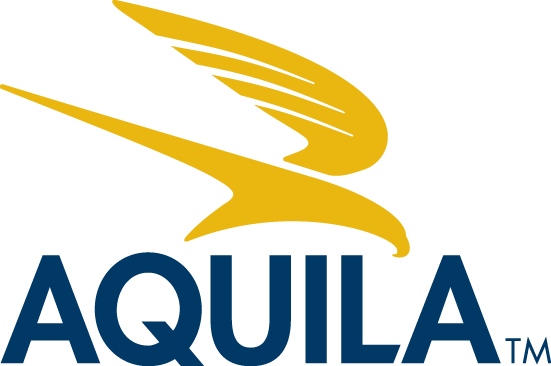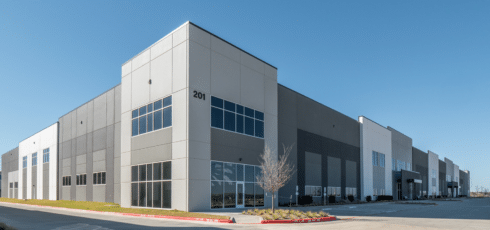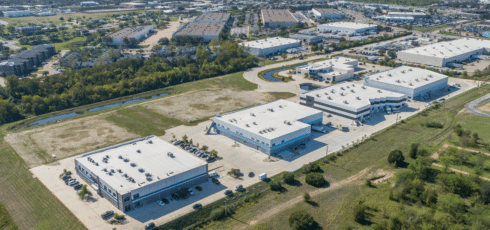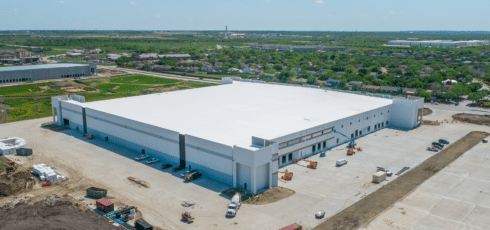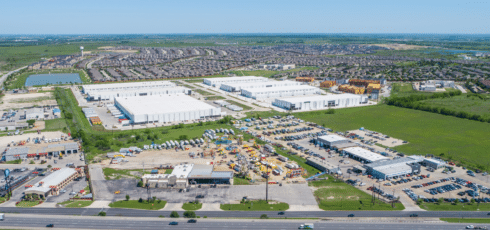When searching for industrial space, one of the most critical factors to consider is the lease length (also called term). Unlike traditional office spaces, industrial properties often require longer lease commitments due to their unique characteristics and the significant investments made by both tenants and landlords.
Read Next: 7 Steps to Finding the Perfect Industrial Space to Lease
In this article, we’ll explore the typical industrial lease lengths, factors that influence lease terms, and strategies for negotiating a lease that aligns with your business needs.
Typical Industrial Lease Term
In most markets, industrial lease terms range from three to ten years, with five to seven years being the most common. However, the specific lease length will depend on various factors, including market conditions, property type, and the tenant’s specific requirements.
Factors Influencing Industrial Lease Term
Property Condition and Improvements
Industrial properties often require substantial improvements and customization to meet tenants’ specific needs. These improvements may include installing specialized equipment, reinforcing flooring, or modifying the electrical and plumbing systems. Landlords typically require longer lease terms to amortize the cost of these improvements over the lease period.
Market Conditions
In competitive markets with low vacancy rates, landlords may have the upper hand in lease negotiations, pushing for longer lease terms. Conversely, in markets with higher vacancy rates or during economic downturns, tenants may have more leverage to negotiate shorter lease terms.
Download Now: AQUILA’s Latest Austin Industrial Market Report
In rapidly growing markets with increasing rental rates, landlords may prefer shorter lease terms. This allows them to take advantage of rising rents more frequently by renegotiating the terms upon lease expiration. By doing so, landlords can maximize their revenue potential and stay competitive in a dynamic market. As a result, tenants may find it challenging to secure long-term leases with stable rates during periods of rapid rent growth.
Tenant Stability and Creditworthiness
Landlords prefer tenants with a strong financial standing and a proven track record. If a tenant demonstrates stability and creditworthiness, landlords may be more willing to offer flexible lease terms or agree to shorter lease lengths.
Negotiating Industrial Lease Term
Assess Your Business Needs
Before entering lease negotiations, carefully evaluate your business’s current and future needs. Consider factors such as projected growth, potential changes in operations, and the likelihood of needing to relocate or expand in the near future.
Leverage Market Conditions
Stay informed about market conditions and use this knowledge to your advantage during negotiations. In a tenant-favorable market, you may have more power to negotiate shorter lease terms or more favorable concessions.
Read Next: How Much Does It Cost to Lease Industrial Space in Austin, Texas? (Rental Rates)
Include Flexibility Clauses
Negotiate the inclusion of flexibility clauses in your lease agreement. These clauses may consist of renewal options, expansion rights, or early termination provisions, which can provide your business with the flexibility it needs to adapt to changing circumstances.
Benefits of Longer Industrial Leases
Stability and Predictability
Longer leases provide stability and predictability for your business. By locking in lease terms for an extended period, you can better plan for the future and avoid the disruption and costs associated with frequent relocations.
Potential for More Favorable Terms
Landlords may be more willing to offer favorable lease terms, such as lower rental rates, a larger amount of free rent, or more generous tenant improvement allowances, in exchange for a longer lease commitment.
Benefits of Shorter Industrial Leases
Flexibility
Shorter leases provide greater flexibility for businesses that are growing rapidly or are uncertain about their future space needs. With a shorter lease, you can more easily adapt to changes in your business without being tied to a long-term commitment.
Reduced Risk
Committing to a shorter lease can reduce the financial risk associated with a long-term obligation. If your business experiences unexpected challenges or changes in the market, a shorter lease may help minimize potential losses.
Read Next: Industrial Lease Renewal vs. Relocation: Key Factors to Consider
Hiring an Industrial Tenant Representation Broker
Hiring an industrial tenant representation broker can significantly help with lease negotiations. These experienced professionals have in-depth knowledge of the local industrial real estate market and are skilled negotiators who exclusively represent tenants’ interests.
They can provide valuable insights into current market conditions, rental rates, and available properties that align with your business needs. By leveraging their expertise and negotiation skills, tenant representation brokers can help you secure favorable lease terms, such as lower rental rates, more generous tenant improvement allowances, and flexible lease lengths, while saving you time and money throughout the leasing process.
Read Next: Who Are the Best Industrial Brokerage Firms in Austin Texas?
Your broker can also provide ongoing support and advice, helping you navigate lease renewals, expansions, or relocations as your business grows and evolves. Partnering with an experienced tenant representation broker is a smart choice for any business seeking industrial space, as they can help you make informed decisions and achieve the best possible outcome for your business.
Conclusion
Understanding the complexities of industrial lease lengths is essential for any business seeking to secure the right space for their operations. By familiarizing yourself with the typical lease lengths, factors that influence lease terms, and effective negotiation strategies, you can approach the leasing process with confidence and make well-informed decisions.
Remember that the key to success lies in finding the right balance between your business’s needs and the landlord’s requirements. While longer leases offer stability and potential cost savings, shorter leases provide flexibility and risk reduction. Ultimately, the ideal lease length will depend on your unique circumstances and goals.
Read Next: Austin-Area Industrial Developments (Under Construction and Proposed)
To navigate this complex landscape, consider partnering with an experienced industrial tenant representation broker. These professionals can serve as your trusted advisors, helping you identify the most suitable properties, negotiate favorable lease terms, and adapt to changing market conditions. By leveraging their expertise and market knowledge, you can create a strong foundation for your business’s success and growth in the years to come.
Are you searching for the perfect industrial space for your business? Contact one of our experienced industrial tenant representation brokers today to discuss your needs and learn how we can help you navigate the complex leasing process.


